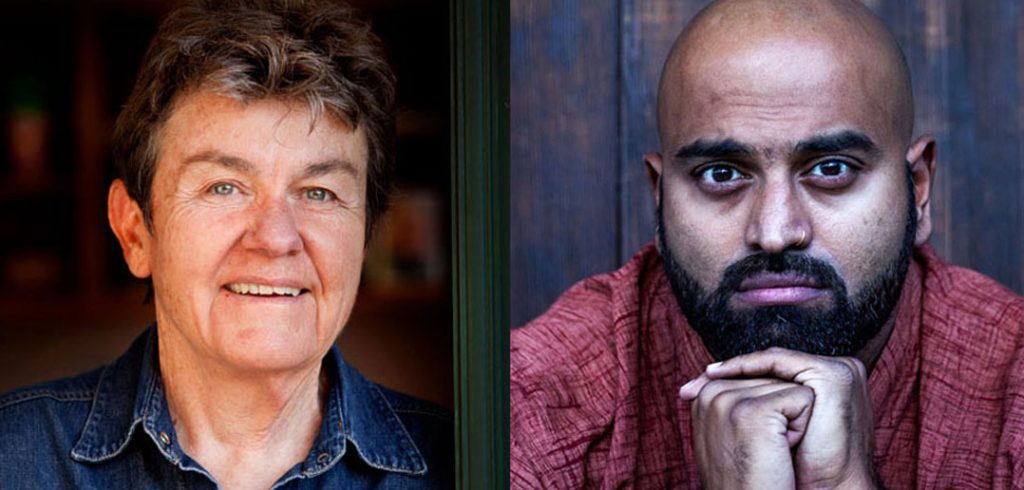If you asked a poet what inspired him or her to write, you might get a variety of answers.
U.S Poet Laureate and Pulitzer Prize winner Kay Ryan, who grew up in the San Joaquin and the Mojave Desert, told PBS’ Jim Lehrer that she became interested in poetry, or “compressed language,” because it can be “highly selected” without making one feel as if they’ve “just had a vitamin pill.”
For Rajiv Mohabir, an acclaimed Indo-Caribbean-American poet who has lived in New York, Florida, Alabama, London, and Hawaii, poetry serves as a conduit to his cultural oral traditions and the different places he has called home.
“I can’t help but pick up pieces and leave pieces everywhere I go,” he said.
As part of the 2017-18 Poets Out Loud reading series, Ryan and Mohabir will deliver readings of their award-winning work on Wednesday, Oct. 25 at Fordham College at Lincoln Center. The event, which is co-sponsored by the college and Kundiman, will be held in the Lowenstein building from 7 p.m. to 8:15 p.m. It is free and open to the public.
“Poets Out Loud has a longstanding commitment to represent a range of ethnicities and poetic styles, and audience members may well be intrigued and excited by this particular pairing,” said Heather Dubrow, Ph.D., holder of the John D. Boyd S.J., Chair in the Poetic Imagination and director of the Poets Out Loud reading series. “Mohabir’s language is luxuriant and multilingual and Ryan’s language is spare, with apparently straightforward words often juxtaposed with startling ones.”
Kay’s collections of poems include Erratic Facts (2015), The Best of It, New and Selected Poems (2010), Flamingo Watching (2006) and The Niagara River (2005). Besides her Pulitzer Prize for Poetry, she has received a MacArthur “Genius” Award and a National Humanities Medal.
Despite these accolades, Kay, who has taught remedial English at the College of Marin for more than three decades, has created equilibrium between her own independence and the literary spotlight she is often thrust into. In the cleverly titled, “Lime Light,” from Say Uncle (2000), she affirms: “One can’t work by/lime light.” Meanwhile “Blandeur,” another poem from the same collection, finds Kay endorsing a similar refrain: “If it please God, let less happen.”
In contrast, the poems of Mohabir, a professor of English at Auburn University in Alabama, Georgia, may seem expansive. “Ode to Richmond Hill,” recalls the vitality of the Little Guyana community in Queens, New York, the words pulsating like the soca, calypso, and Bhojpuri folk music of his ethnic customs: “eyes in disbelief, Pick up yuh/paisa, na man! no worry/on this slate day youths dem/speak no Hindi to know paisa/means money, a taxi speeds/by blaring chutney remix.”
Mohabir will be reading poems from his debut poetry collection, The Taxidermist’s Cut (2016), and The Cowherd’s Son (2017), for which he received the 2015 Kundiman Prize.
“As a student, I remember going to these types of readings and saying, ‘Oh my god! Is it possible that I can write like this?’” he said. “I feel like it’s cool to be in such dialogue and inhabit that space where people are actually listening to what I say, but then also thinking about how to include the things they never thought they could do in their own writing.”
Ryan, who will be reading poems from The Best of It and Erratic Facts, enjoys the unique perspectives that poetry readings can bring.
“What I most enjoy about reading my poems to an audience is the sense I get of a big collective mind receiving them, a mind bigger and more convincing than any individual mind,” she said. “It’s nice to read to a really big mind.”


